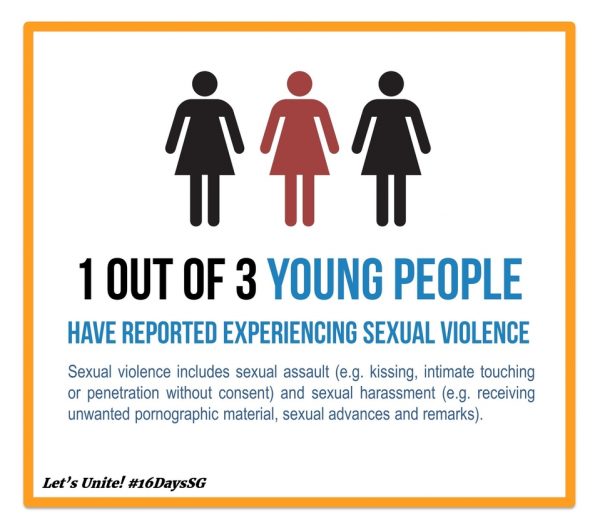-
Advocacy Theme
-
Tags
- Abortion
- Adoption
- Caregiving
- CEDAW
- Disability
- Domestic Violence
- Domestic Workers
- Harassment
- Healthcare
- Housing
- International/Regional Work
- Maintenance
- Media
- Migrant Spouses
- Migrant Workers
- Muslim Law
- National budget
- Parental Leave
- Parenthood
- Polygamy
- Population
- Race and religion
- Sexual Violence
- Sexuality Education
- Single Parents
- Social Support
- Sterilisation
- Women's Charter
Actively implement policies to tackle workplace harassment
November 20th, 2017 | Employment and Labour Rights, Gender-based Violence, Letters and op-eds, News, Workplace Harassment
This letter was originally published in TODAY Voices on 19 November 2017.
 Recently, women have been sharing on social media their experiences with sexual harassment and violence in response to the hastag campaign #metoo, and high-profile cases in Hollywood have been in the news, revealing that such harassment is common, especially in workplaces.
Recently, women have been sharing on social media their experiences with sexual harassment and violence in response to the hastag campaign #metoo, and high-profile cases in Hollywood have been in the news, revealing that such harassment is common, especially in workplaces.
Studies show workplace harassment is associated with job dissatisfaction and disengagement, and result in higher turnover rates and absenteeism. Poor handling of workplace harassment – for instance, where women have their complaints dismissed without proper investigation, or are threatened for raising complaints – only reflects badly on an employer.
Some victims of harassment, with no assurance that they will be taken seriously, simply silently leave their positions, contributing to staff turnover. Organisations lose valuable human resources as a result.
A safe and healthy workplace environment can only benefit all. Support for those who are harassed or bullied builds trust in the organisation. Establishing clear rules, policies and protocols allows employers to pre-empt issues and be in a better position to deal with them when they arise.
The first step employers can take is to implement recommendations from the Tripartite Advisory on Managing Workplace Harassment on how employers and employees can prevent and respond to workplace harassment. This document stresses the “importance of proactive management” and preventative training.
Yet in our experience, the take-up of this is low. Earlier this month, Minister for Manpower Lim Swee Say said that the Advisory is “not prescriptive” and the Ministry “does not track” the take-up rate. Out of the 800 complaints the Tripartite received in the last three years, “fewer than 5… involved allegations of sexual harassment”.
By contrast, the Sexual Assault Care Centre has received 158 complaints on workplace sexual violence in the last two years. Many of these clients have raised no formal complaint with their employers or any other authorities. Some victims will only have the confidence to come forward in response to a proactive assurance that they will be taken seriously. Such assurance is lacking at the moment.
Moreover, some employers pressure their employees to sign non-disclosure agreements, which restrain them from speaking up about the problem after their departure.
Catalyse Consulting, our corporate training arm, has trained hundreds of employers and employees on what constitutes workplace harassment, and on best practices to equip them with the tools they need to address harassment, and thus create safer and more productive workplaces. We urge all employers to implement a comprehensive anti-harassment policy, to send a strong message to employees that they are well-equipped to support employees. The Government can also do more to promote awareness of its advisory on the subject.
—
Register for “How Will You Handle Your Harveys?”, our upcoming panel by experts on workplace sexual harassment and employer responsibility here!
Learn more about how you can take action against gender-based violence by taking part in Let’s Unite, our 16 Days of Activism campaign kicking off 25 November and attending #metoo, #nowwhat, a dialogue on violence against women in Singapore.



